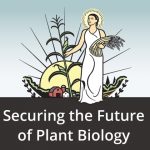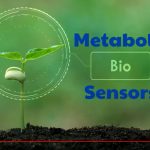The Future of Our Food Systems: Insights into GMOs. Part II
Science communication and outreach initiative aimed at high-school students
By Conviron Scholar Sessen Daniel
Genetic modification technology is a key asset for enhancing crop characteristics and building more efficient, resilient and inclusive agricultural systems. Increased yield, resistance to emerging diseases and pests, tolerance to environmental pressures and higher nutritional quality are examples of instrumental plant features that have been conferred through genetic modification. Yet, this technology has been at the center of public debate and controversy for decades, which often stem from misconceptions and rampant misinformation.
While the number of bogus claims that circulate seems endless, we as young scientists believe that advocating for the dissemination of reliable scientific information, raising awareness on the potentials of these technologies and, above all, promoting scientific reasoning and critical thinking through public outreaching initiatives aimed at K-12 classrooms can make a difference.
In line with this, we as ASPB Conviron Scholars and graduate students from all over the world organized a webinar entitled “The Future of Our Food Systems: Insights into GMOs” in collaboration with the Scientists in Every Florida School educational outreach program. The event involved about a hundred students from three high-schools in Florida (US).
We first developed a questionnaire that was handed out to students as pre-materials and set up the webinar learning objectives based on their responses. The webinar consisted of five sections: 1) challenges in our current agricultural and food systems; 2) relevance of genetic modification technology, history of genetic improvement in agriculture and comparison between plant improvement strategies; 3) GMOs definitions, GM techniques, milestones and examples; 4) GMOs and impacts on farming systems and 5) public concerns and misconceptions. On top of this, we developed a GMO bingo game, a storyboard and infographics that were handed out as post-webinar resources to enable students to share what they had learnt with their communities. Lastly, students were invited to share their feedbacks by filling up a survey.
You may watch the webinar recording at University of Florida Thompson Earth System Institute’s Youtube channel:
The initiative gave us key insights on students’ acquaintance, opinions and concerns,enabling us to broaden our GMO-science communication perspectives. We were amazed by the positive feedbacks received both during and after the webinar, a sign that young students want to get involved in the public debate and act as agents of change in their communities by spreading reliable information.
Would you like to know more about the resources we developed and organize a science communication and outreach event with your students? Please reach out to us, and we would be more than happy to collaborate!!



